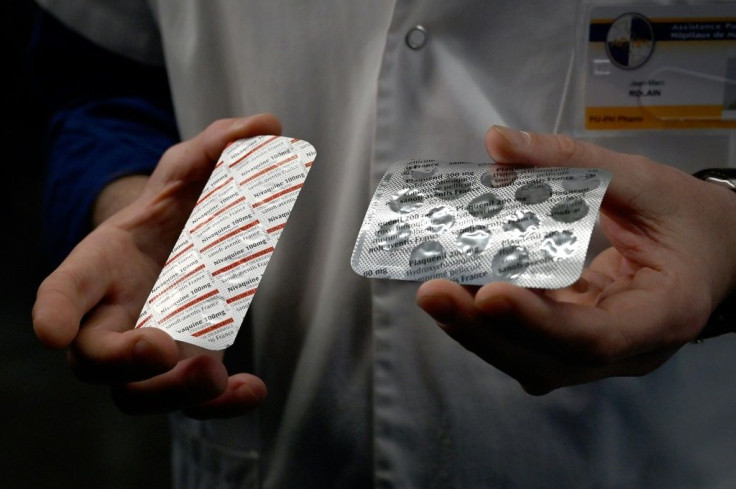Coronavirus Treatment: FDA Urges Caution In Chloroquine Use, Citing Dangers

KEY POINTS
- Chloroquine and hydroxychloroquine have been around for decades and are used to treat malaria, lupus and rheumatoid arthritis
- In addition to heart problems, it can cause kidney disease and trigger seizures, among other side effects
- A Chinese study indicated it was of little help to COVID-19 patients
The Food and Drug Administration on Friday cautioned against the use of the anti-malaria drugs chloroquine and hydroxychloroquine to treat COVID-19 following reports of serious heart rhythm problems in patients treated with them.
As of midday Friday, the U.S. had confirmed more than 872,100 coronavirus infections and more than 50,000 deaths.
The FDA said though its investigation is continuing, doctors should use caution in prescribing the drugs, which, until recently, were promoted as a cure for the coronavirus by President Trump.
A study released earlier this month found patients treated with chloroquine were no more likely to recover than those who weren’t. Clinical trials are still underway.
“The FDA is aware of reports of serious heart rhythm problems in patients with COVID-19 treated with hydroxychloroquine or chloroquine, often in combination with azithromycin and other QT prolonging medicines. We are also aware of increased use of these medicines through outpatient prescriptions,” the FDA said.
The agency added: “Hydroxychloroquine and chloroquine have not been shown to be safe and effective for treating or preventing COVID-19.”
The drugs can cause tachycardia, which can raise the heart rate above 100 beats a minute, as well as other heart rhythm problems. They also can cause heart and kidney disease, and exacerbate such conditions as diabetes and psoriasis, as well as trigger seizures. Additionally, the drugs are toxic to fetuses.
The FDA last month authorized the emergency use of the drugs, which have been used to treat malaria, lupus and rheumatoid arthritis for decades. Though they worked in the lab against coronavirus, their value in handling the pandemic still was unclear.
“Because chloroquine phosphate and hydroxychloroquine may possibly help very sick patients, FDA is allowing these drugs to be provided to certain hospitalized patients under an EUA [emergency use authorization] issued March 28, 2020,” the FDA said, also noting optimal dosage was unknown. They were not approved for prophylactic use.
© Copyright IBTimes 2025. All rights reserved.






















